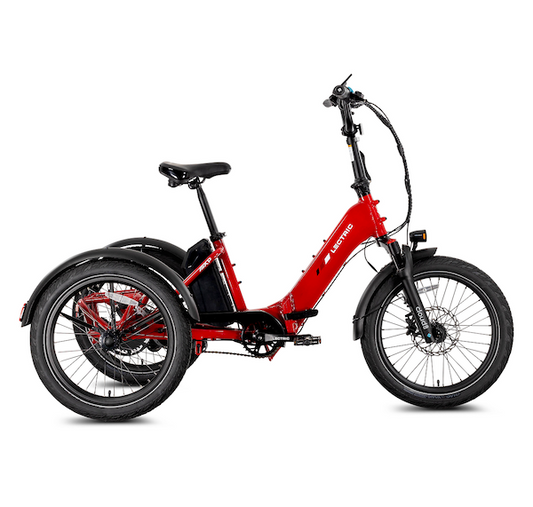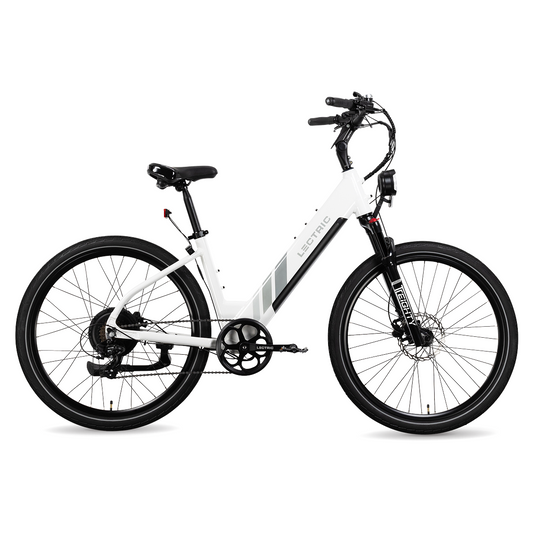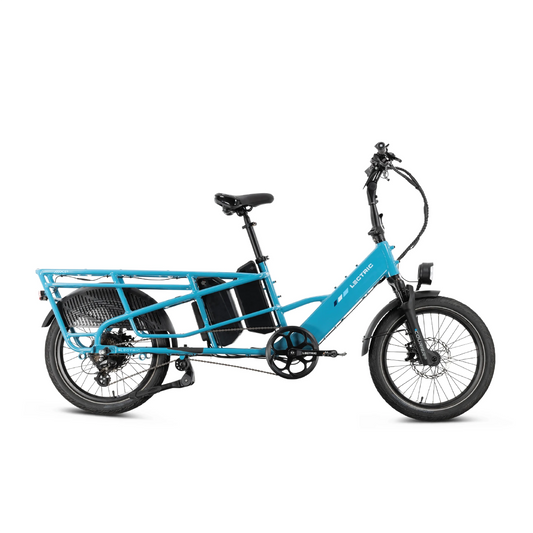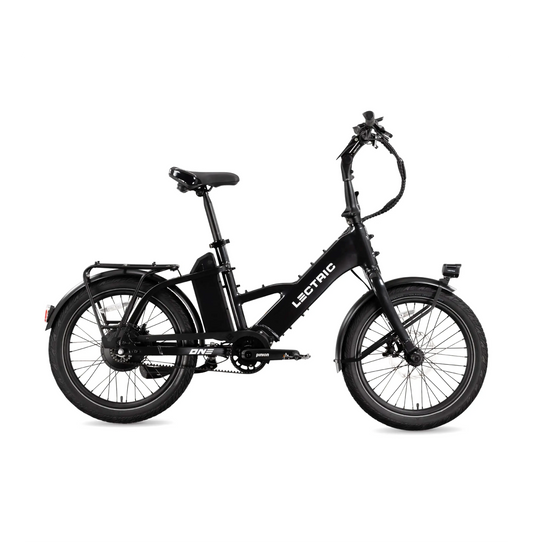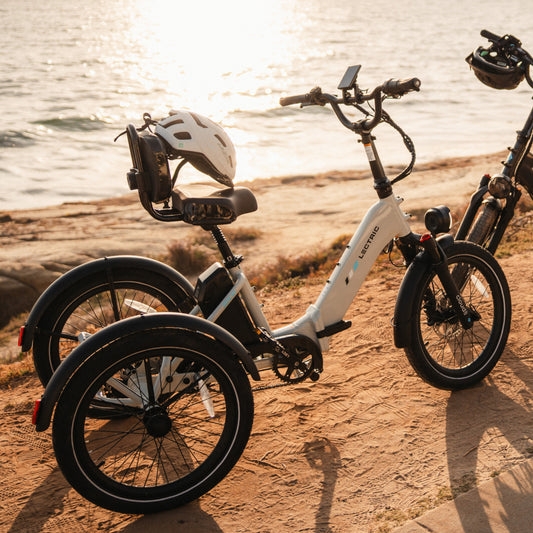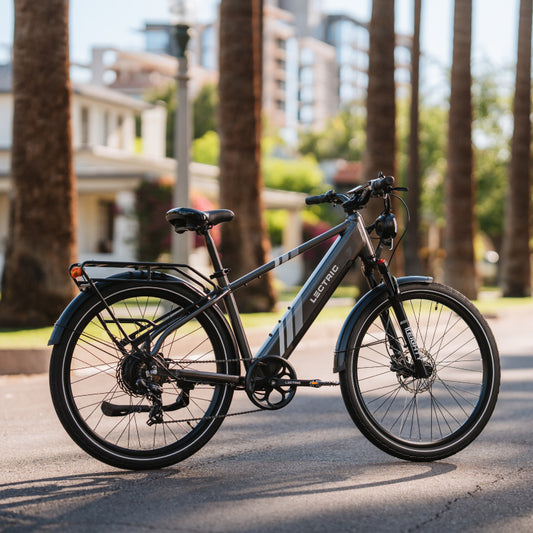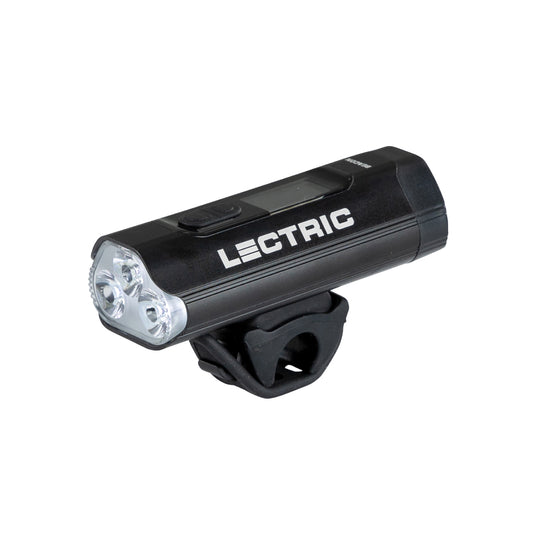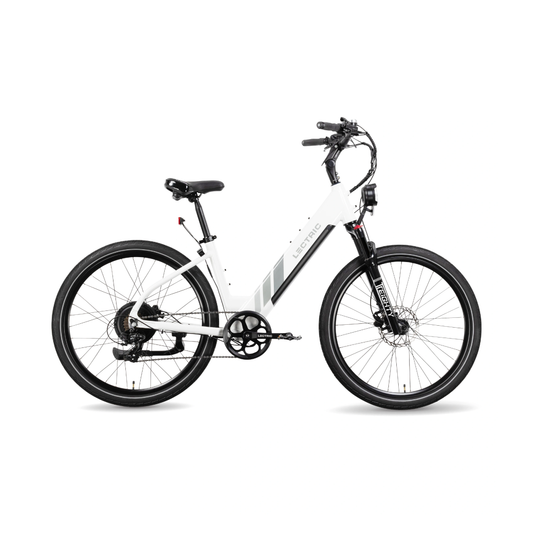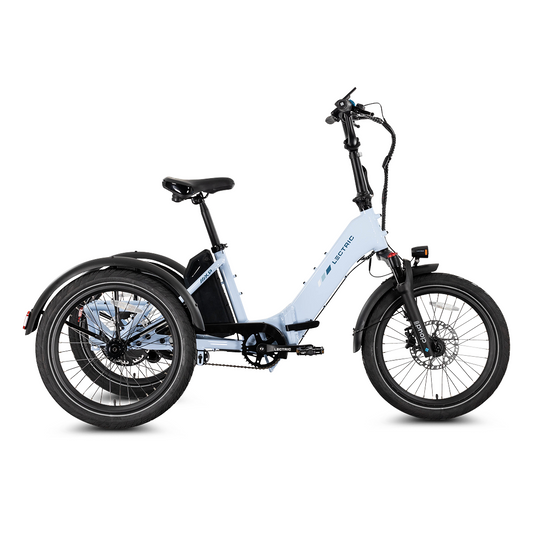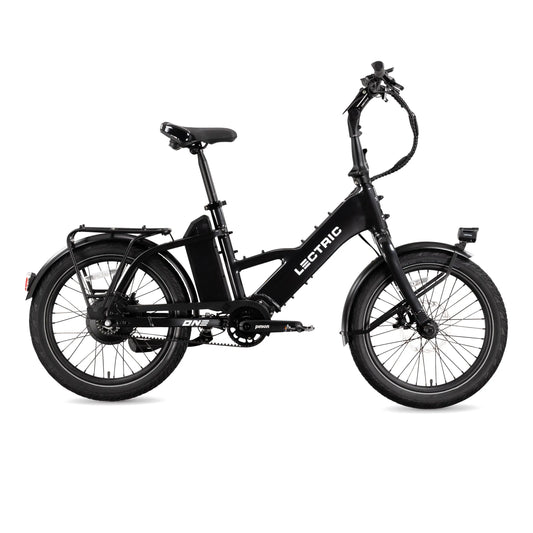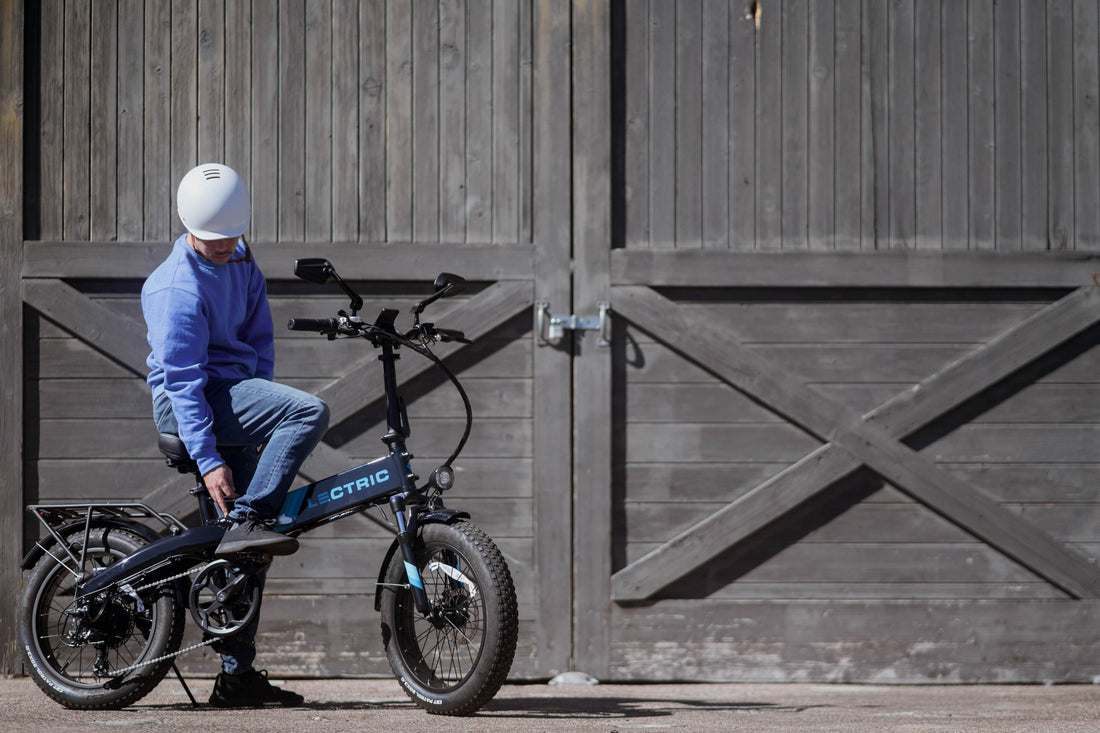With gas prices on the rise, you may be thinking about transportation alternatives for your car. According to the National Institute for Transportation and Communities, 50% of all electric bike trips are ones that replace car trips, making eBikes one of the most popular transportation solutions. An eBike’s comparatively low cost for operation and minimal impact on the environment make it an outstanding candidate to replace a car. Opting into eBiking and out of gas-guzzling alternatives can be a daunting concept to non-cyclists, but doing so benefits both your pocketbook and your surroundings. Here’s how!
The money you save on gas once you begin replacing car trips with eBike trips will pay for the eBike itself, and then some. If gas prices continue to spike through the roof as they have these past few weeks, the average American is projected to spend between $4,000 and $5,000 on gas this year alone. On the other hand, the average cost of charging an eBike annually is estimated to be around $30, according to this Eco Cost Savings Study. Not to mention, you can charge your eBike with most typical wall outlets. There is no need to stop at a gas station to fill up when you can charge at home!
The maintenance costs associated with each of these vehicles is also noteworthy. Cars require oil changes and repairs that cost several times that of eBike tune-ups and part replacements. For reference, an annual eBike tune-up costs between $50 and $100 and parts and materials would add up to be around $100 to $150 annually, according to Ebike Generation. Cars, on the other hand, can cost anywhere from $900 to $1,800 to maintain annually, according to AAA Newsroom. These estimates are inclusive of typical wear and tear. Accident repairs would certainly add up on top of this, especially within the car category.
Another thought to keep in mind when considering eBikes versus cars is the environmental impact eBikes have compared to that of a gas-powered vehicle. According to National Geographic, motor vehicles produce more than 30% of carbon dioxide, 80% of carbon monoxide, and 50% of nitrogen oxide emissions each year in the US. Much of this pollution is produced by commuters making short trips from home to work and back. Swapping some of these short car commutes for eBike commutes would cut down on a significant amount of emissions and fossil fuel usage. To take this a step further, if every American living within 5 miles of their workplace commuted by eBike just one day out of each week, the result would be equivalent to millions of cars being removed from the roads entirely.
Lastly, an eBike’s impact on existing road infrastructure is far less intense than that of a car. Ebikes weigh in at about 40-80 pounds, while cars weigh in at about 2,000-4,000 pounds, on average. Even after you break it down to weight per wheel for each of these options, an eBike has virtually no effect on road infrastructure when compared to a car. Tax dollars being directed towards road infrastructure repair would decrease significantly with fewer cars, and more eBikes on the roads.
As an eBiking outsider, it can be an intimidating thought to replace trips you’d typically endure by car with a ride on your eBike. The benefits are evident, however, and Lectric is proud to be a part of the transition to electric, gas-less transportation. We are committed to help as many people as possible opt into electric transportation, benefiting our shared environment.
Check out our awesome eBike options here!


